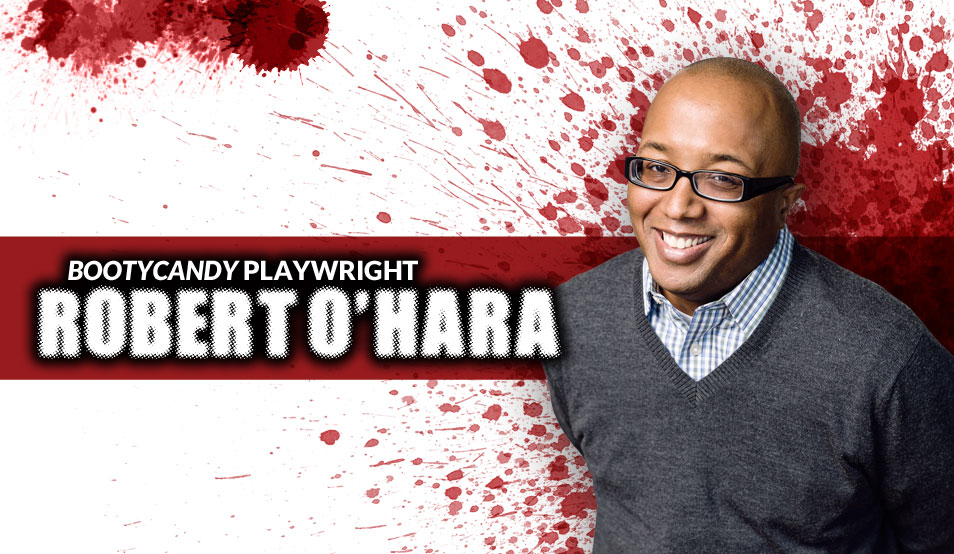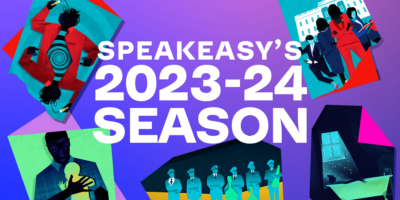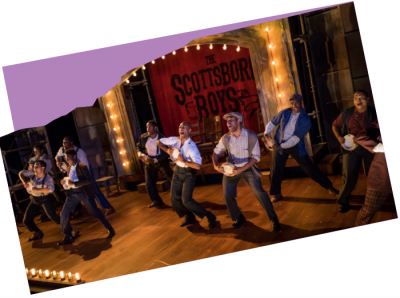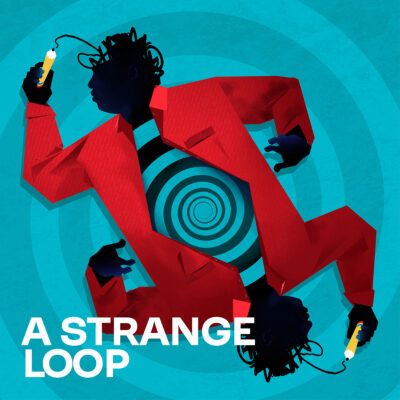Your donation sets the stage for a new season of Boston's most intimate, entertaining and provocative plays and musicals. Our shows make powerful connections with our audiences-- and they are only possible because of you.
“Everyone is welcome, and no one is safe.”




“Everyone is welcome, and no one is safe.”
Originally from Cincinnati, Robert O’Hara has been working across the nation as a playwright, director, and screenwriter since the 1990s. His plays are wide-ranging in style and substance, but all of them have an audacity and humor at their heart that welcomes the audience into, as O’Hara calls it, “The Theatre of Choke,” where the ideas aren’t meant to go down easy. SpeakEasy Artistic Associate Walt McGough caught up with O’Hara by phone, and spoke to him about the process of creating Bootycandy, and how it fits into broader national conversations on race and representation.
SpeakEasy Stage: You’ve been creating theatre pretty much all your life; at what point did it become a professional pursuit?
ROBERT O’HARA: It didn’t really click in until after my junior year in college. Before that I was a political science major, and then I was an English major, and then I was a drama major; but I didn’t really know what that meant in terms of a real job. Then I decided at the end of my junior year that I wanted to get an MFA in directing. I think it was mostly just being in close proximity to NYC, and also having the encouragement and support of the theatre department at Tufts, where I went to school. So, that’s where I sort of thought, “Oh, maybe I can make a career as a director.” I was always a playwright, but it never crossed my mind that writing would be a part of it, too.
SES: So writing was more of a personal vocation?
RO: Oh yeah. I was always doing it, I was writing plays from a very young age, just little scenes and what-have-you. But the idea of being paid for that…I thought, “Directors actually get paid, but playwrights are just writing stuff.” That was my take on it.
SES: Bootycandy got its start as some of those “little scenes,” didn’t it?
RO: I think that every writer, at some point throughout their career, will write little short things here and there. They won’t know what’s going to come of it, or what it is. It’s just an idea. And so over a decade of working in New York, I sort of collected a bunch of short plays into an evening. And then I was asked to do something for a young theatre company that I was working with. I made it an evening of short plays and just titled the evening Bootycandy.
SES: It’s a great title.
RO: When you hear it, and you ask someone what they think it means, the answer will depend on who they are and what their sexuality is and how they woke up that day. It’s going to mean various things. But it really is an innocuous word for a kid’s genitalia. Parents call their children’s genitalia all sorts of different things, but they rarely call it “penis.” We make up these little things, and then sometimes it sticks. So I wrote the first play of Bootycandy for that evening of shorts, just to give it some context. And that sort of spread out afterwards, because half those plays are now gone, and are not a part of Bootycandy as we know it now.
SES: How did the play in its current form come about?
RO: It was a commission from Woolly Mammoth theatre. They said, “Y’know, some of those short plays are interesting, and the characters are, too. Do you want to explore them more?” And I said “That’s crazy, you guys are crazy, these plays have nothing to do with one another. They were written all crazy times for other reasons.” But then I looked back at them and I thought “Oh, but they were written by the same crazy person. Maybe that’s the link.” The fact that they were written by the same person tells us something about the characters themselves. So that’s where it came from.
SES:A lot of that tension has remained, though, between these scenes being discrete stories, and also part of a full narrative.
RO: I think that, because it was never supposed to be a unified play, what happened to make it unified was me wanting to remove the idea that there was a linear narrative. You see the first five things, and you think “I don’t know what this play’s about. There’s all these different things. It’s hard to connect these things.” So I wanted to remove the need to connect them. It’s more of a thematic narrative, and an experience, as opposed to a play where you go from beginning to middle to end. I think there is a strong narrative, but I didn’t want the audience to feel like, “Oh, I don’t get it.” I wanted them to go to intermission and say, “Oh, I see. That was all these different stories.” I’m giving permission to not make it work, to not try and connect it. Then you’re sort of unaware when the connection happens.
SES: That also seems very tied to the way that the play treats ideas of identity and perception.
RO: There are all these identities that I think all of us, every human being, sort of code switches. But especially when you’re African American and you’re homosexual, there are tons of code switches that you must do throughout your life, at different times and situations, to protect yourself. You have to pretend to be more of a part of yourself than you are. Not to be someone else, but to bring out certain parts of yourself that you don’t normally. So, y’know, push it to the forefront. Sometimes you have to be rude, sometimes you have to be funny, sometimes you bite your tongue. We all do this, and I think that’s what identity is in this play. No one teaches a gay boy how to date, or even how to approach a man. Everyone else is going through that whole process of, “Hey, will you come to the prom with me, can we go out and get some soda.” That doesn’t happen, normally, in terms of socialization of homosexual children. So you sort of find yourself in these situations in which you just have to figure it out.
SES: There’s something very universal to it, while also feeling very dangerous.
RO: I certainly wanted to hold on, I think one of my mottos that I always say is “Everyone is welcome, and no one is safe.” And it’s because I want everyone to feel like they’re a part of the story and a part of the journey, but at the same time, you can be indicted by what you’re either laughing at or by what you don’t get or by what is offensive to you. And oddly enough, Bootycandy works well in a predominantly mixed audience. I’ve seen whole audiences of white people fall out their seats at Bootycandy. And it works well in all different kinds [of audiences], but works extremely well when you have people sitting in the audience next to people they don’t usually sit next to, and other people getting jokes, generational jokes, racial jokes, sexual jokes, that other people are not getting
SES: It all seems to dovetail with the current conversation around representation and perspective in the arts, be it theatre or the Oscars or Beyonce’s newest video.
RO: It’s the same conversation I’ve been having all my life, but I feel like more and more people are joining in on it. My narrative has never been dictated by the majority. So much of me is left out of that narrative that it was never the narrative I felt interested in. But I certainly had to learn it, as a sort of audience in theatre, I had to learn it.
SES: Has the conversation changed or evolved at all, in your perception?
RO: The mere fact that you can talk about it now means that somehow something’s changed. We can sit in a room together and not cuss each other out about it, and that means that we’ve made progress. But this whole idea of patting ourselves on the back because of how many obstacles we’ve overcome is not great. It’s like, “Oh, there’s a black Phantom of the Opera now!” And like, yeah, but if you hadn’t had a white phantom for thirty goddamn years, you wouldn’t have to get excited about a black one. Now we’re supposed to jump up and down and have a big celebration because they finally decided that the guy beneath the opera can be black. Let’s have a parade! That shouldn’t be remarkable.
SES: Anything you’d like the audience to know going into this play?
RO: I think that if you don’t leave after the first scene, then you get what you deserve. I’m showing all my cards, and yet I have more to show you. It’s a ride, so come to experience the ride of Bootycandy, and just let yourself go and have a lot of fun. I can’t wait to see it myself.
 Join us for spectacular season 33!
Join us for spectacular season 33! Past Productions
Past Productions a strange loop
a strange loop




